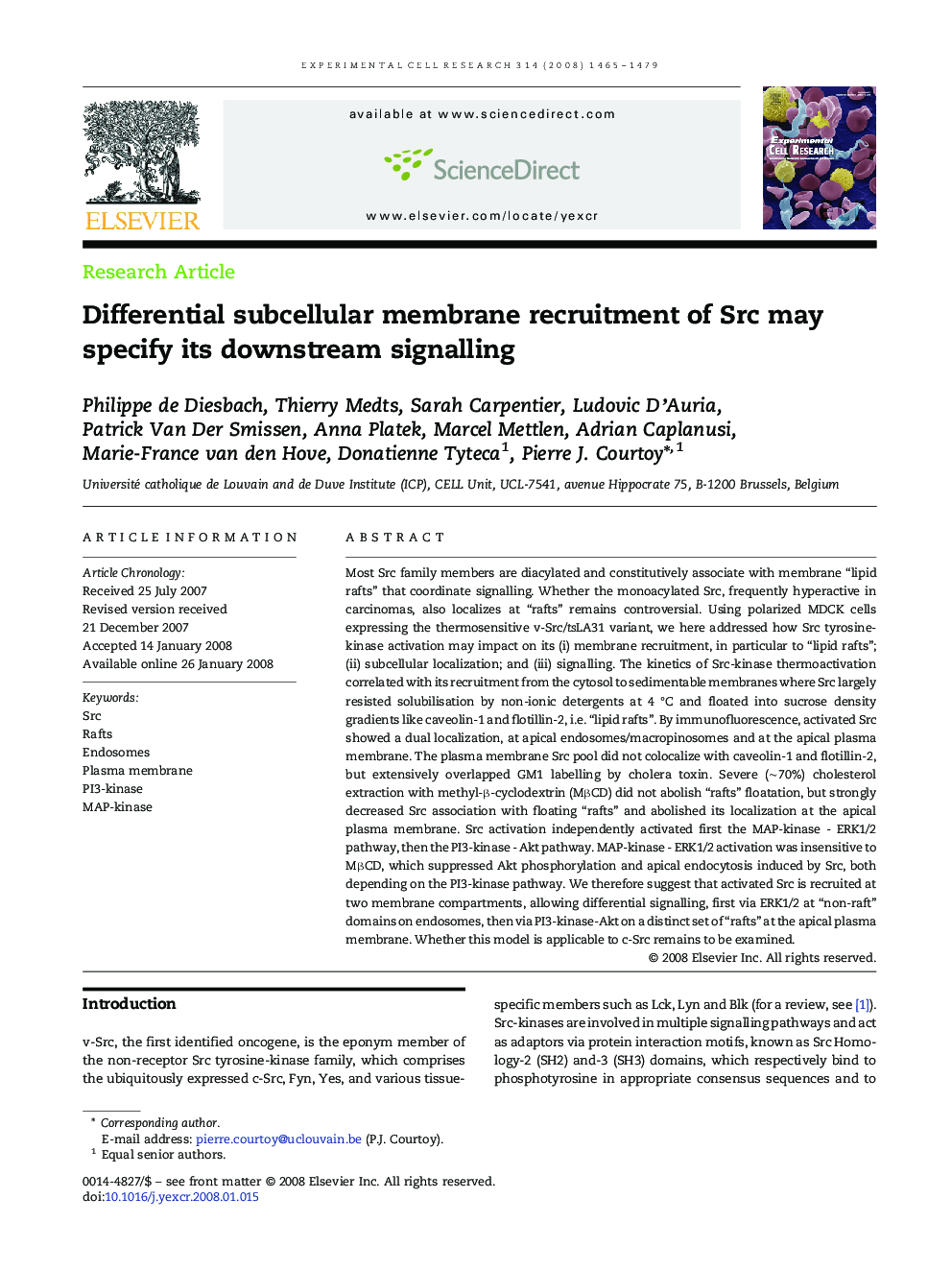| Article ID | Journal | Published Year | Pages | File Type |
|---|---|---|---|---|
| 2131524 | Experimental Cell Research | 2008 | 15 Pages |
Most Src family members are diacylated and constitutively associate with membrane “lipid rafts” that coordinate signalling. Whether the monoacylated Src, frequently hyperactive in carcinomas, also localizes at “rafts” remains controversial. Using polarized MDCK cells expressing the thermosensitive v-Src/tsLA31 variant, we here addressed how Src tyrosine-kinase activation may impact on its (i) membrane recruitment, in particular to “lipid rafts”; (ii) subcellular localization; and (iii) signalling. The kinetics of Src-kinase thermoactivation correlated with its recruitment from the cytosol to sedimentable membranes where Src largely resisted solubilisation by non-ionic detergents at 4 °C and floated into sucrose density gradients like caveolin-1 and flotillin-2, i.e. “lipid rafts”. By immunofluorescence, activated Src showed a dual localization, at apical endosomes/macropinosomes and at the apical plasma membrane. The plasma membrane Src pool did not colocalize with caveolin-1 and flotillin-2, but extensively overlapped GM1 labelling by cholera toxin. Severe (∼ 70%) cholesterol extraction with methyl-β-cyclodextrin (MβCD) did not abolish “rafts” floatation, but strongly decreased Src association with floating “rafts” and abolished its localization at the apical plasma membrane. Src activation independently activated first the MAP-kinase - ERK1/2 pathway, then the PI3-kinase - Akt pathway. MAP-kinase - ERK1/2 activation was insensitive to MβCD, which suppressed Akt phosphorylation and apical endocytosis induced by Src, both depending on the PI3-kinase pathway. We therefore suggest that activated Src is recruited at two membrane compartments, allowing differential signalling, first via ERK1/2 at “non-raft” domains on endosomes, then via PI3-kinase-Akt on a distinct set of “rafts” at the apical plasma membrane. Whether this model is applicable to c-Src remains to be examined.
